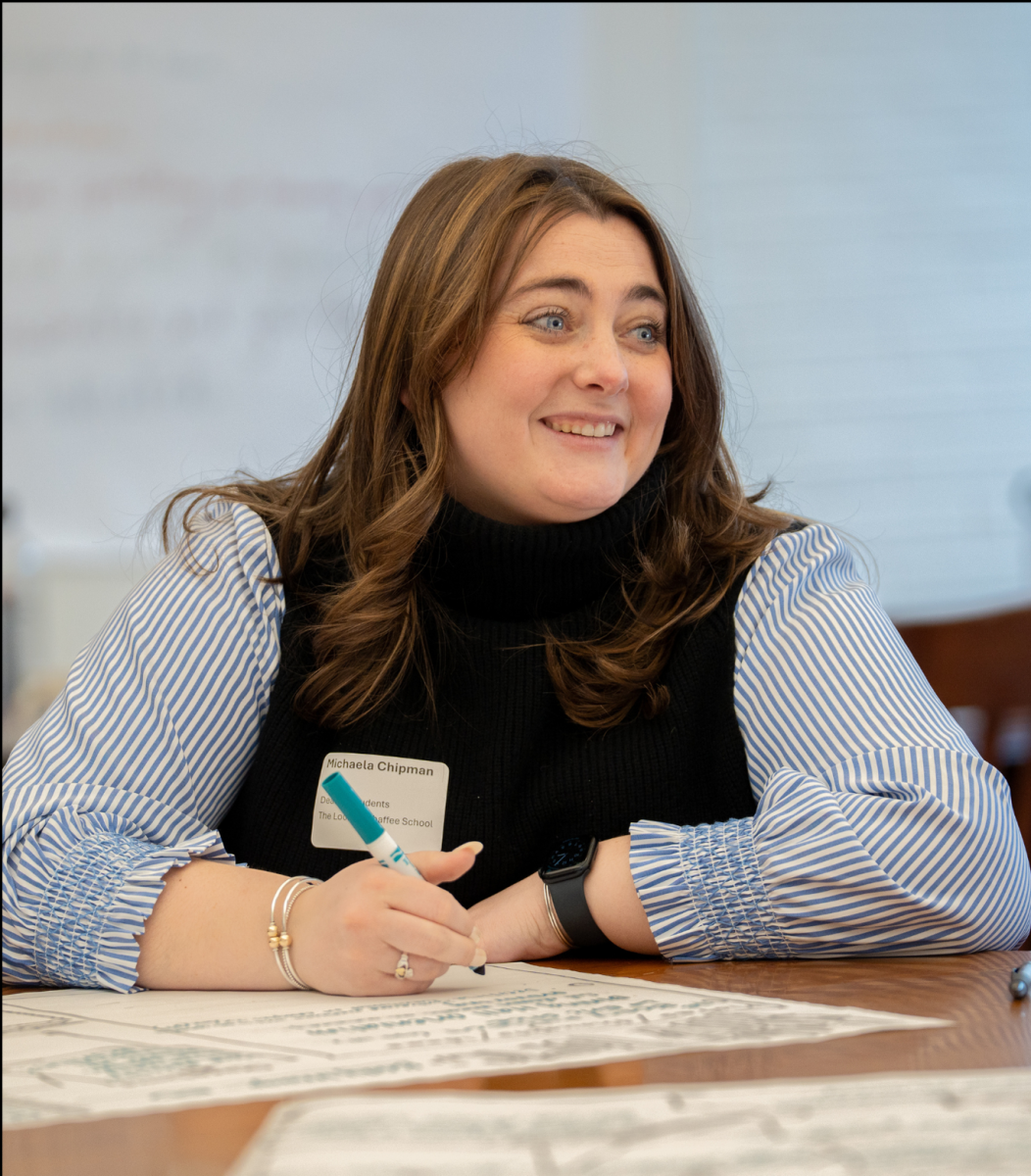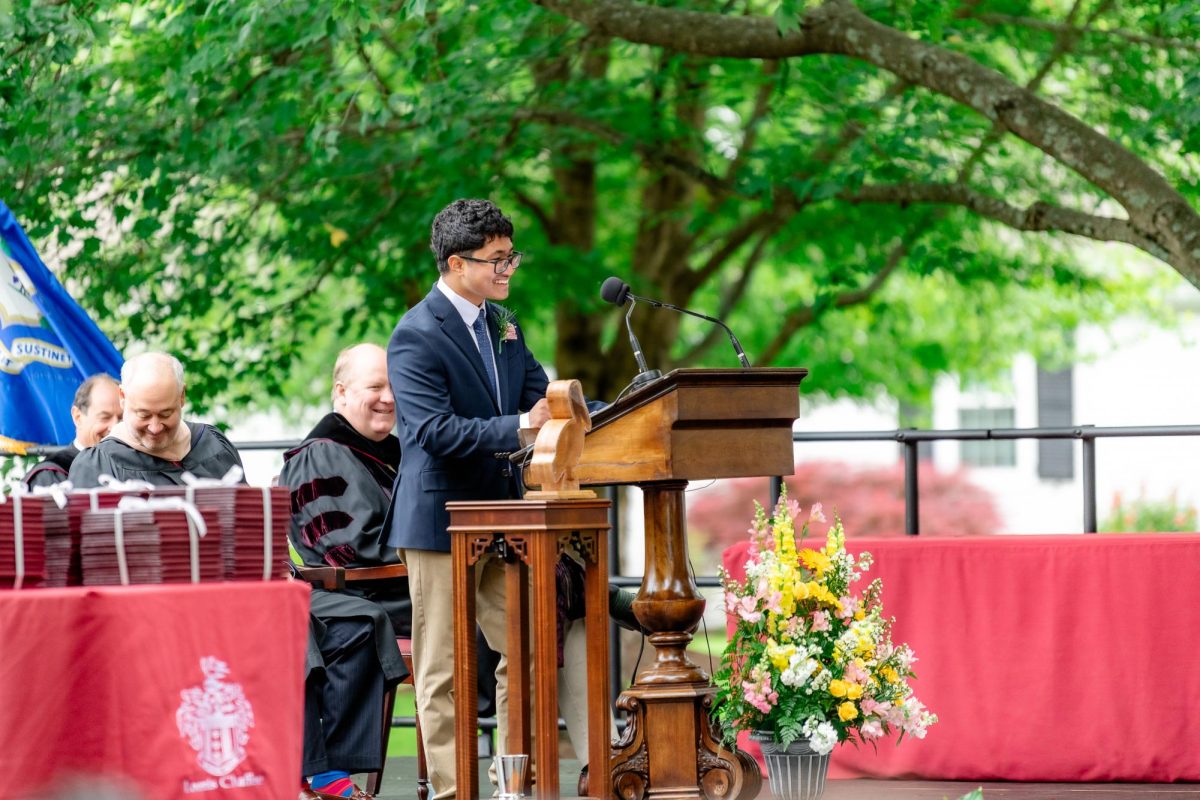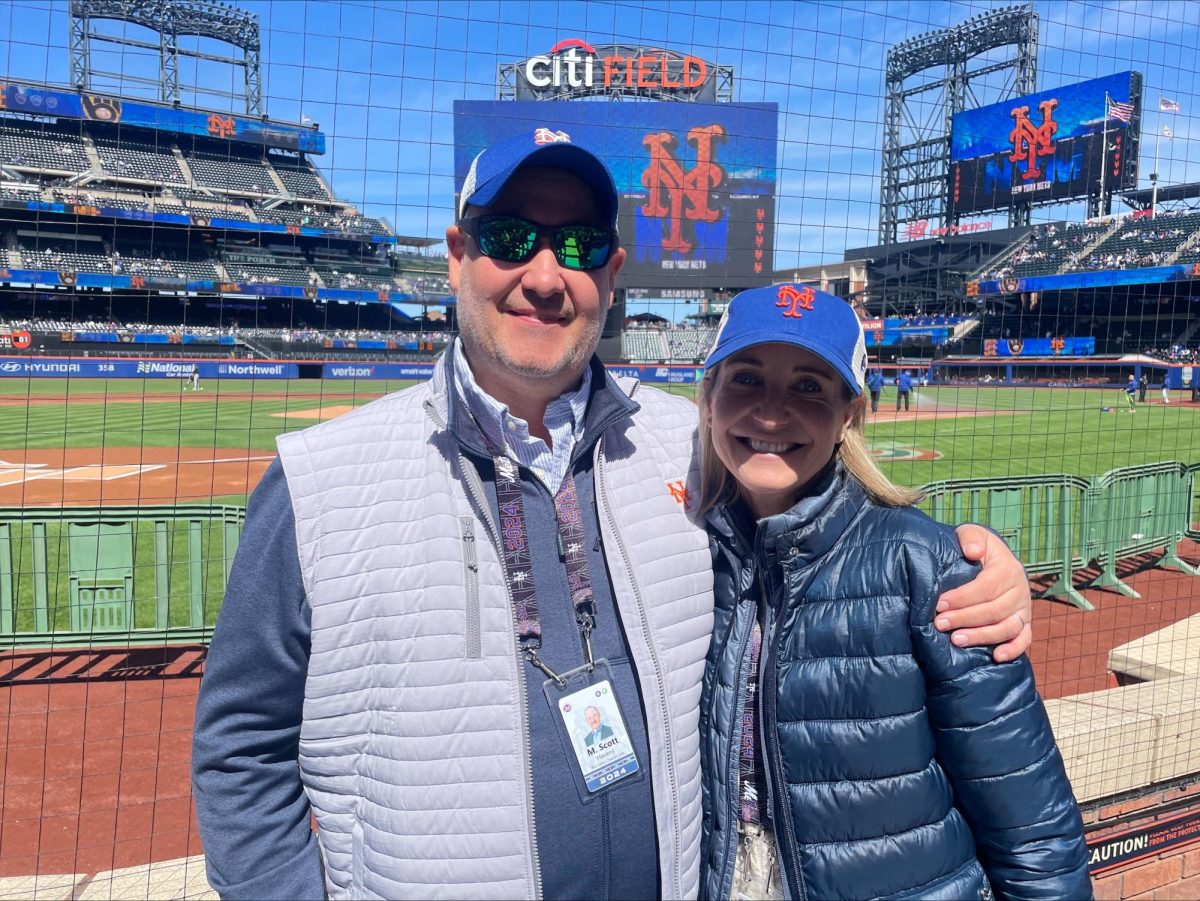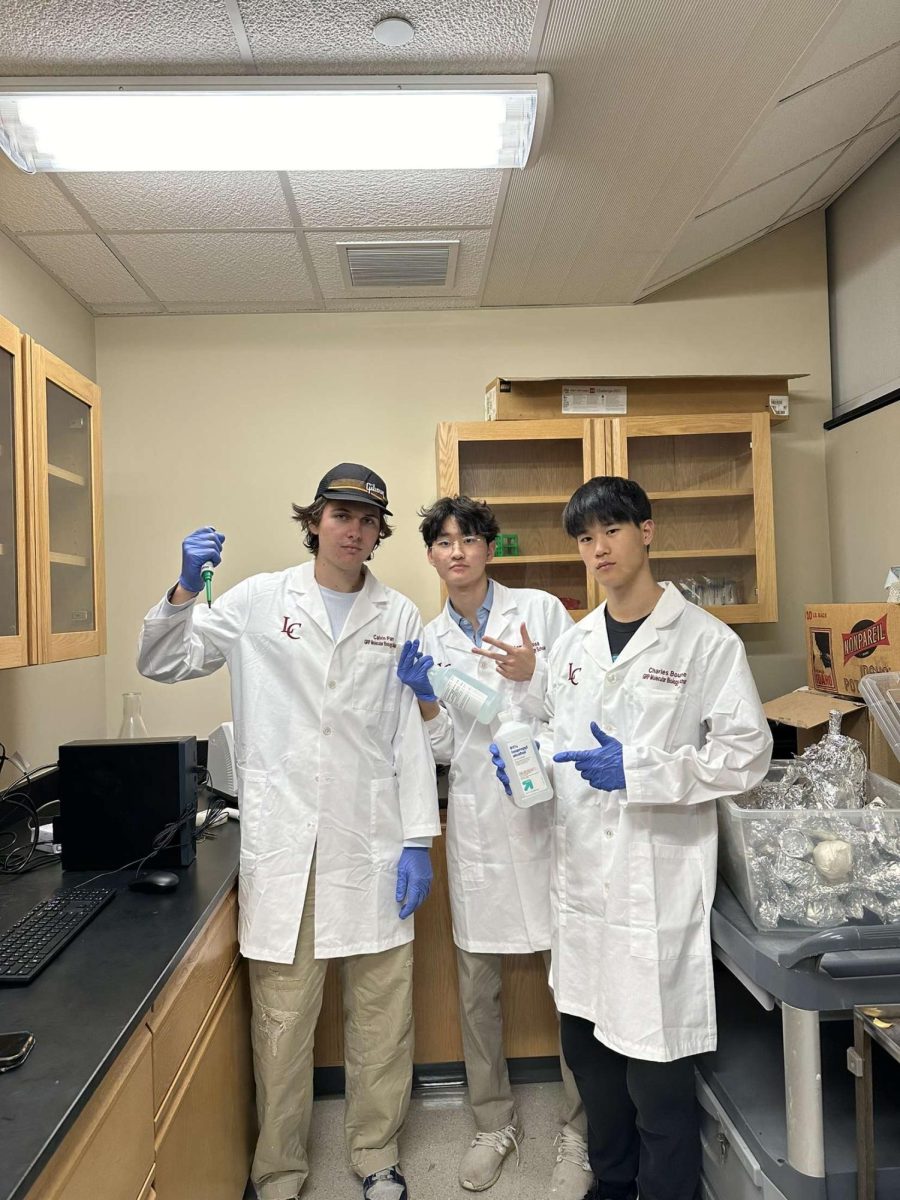Each summer, the Norton Family Center for the Common Good picks a select group of students to pursue a passion project that serves the common good in their local community. This summer, four students partook in the Norton Fellowship and returned this fall with large successes in their projects.
Matthew Kammrath, Director of the Norton Center, noted that these four participants each had one major commonality: a deep emotional connection to their work. These students took great interest in their projects and the people whom they affected in a very profound way, and their results are certainly a testament to their tenacity.
Andrew Addo ’25 made strides in waste collection in the hometown of most of his family, Prampram, Ghana, a town with which he has a deep connection. Having visited Prampram since 4th grade, he noticed a decrease in the fish available for purchase in the past few years. He investigated the roots of this issue and found the source.
“A major deterrent to tourism in the city is the excess of plastic waste,” Addo said. “Another crucial issue is in the oceans. Fishing is the biggest industry in Prampram, and an increase in plastic waste causes direct harm to the fishing population.”
Addo set his mind to rectifying the problem, so he organized a large group of over 120 volunteers to come and help clean the shoreline. He filled ten 50-gallon bags of plastic waste and helped to prevent future plastic waste by raising awareness on social media.
“I really enjoyed the summer project and took away many important lessons,” Addo said. “For instance, I … learned how to effectively gather large groups of people and organize a big event.”
Isabella Delach ’24 noticed a large refugee population coming into the Chicago area, and so she took action to ensure the well-being and integration of these newcomers into the local community.
“I used my budget to buy food and hygiene donations called a Welcome Kit meant for families that have just resettled,” Delach said. “I [also] volunteered at a summer camp for four weeks and led a Book Club and Art Club that taught third and fourth graders about literature, poetry, and art.”
The impacts of her volunteering reached over 30 children, while her care packages benefited five refugee families.
Additionally, Delach noted a particular struggle with uniting the children she was working with because of the language barriers and cultural differences. However, with patience and empathy, she found a way to overcome these barriers and foster connections between the children.
“Although I wish I could have used my budget to impact the people I was working with more,” she said, “I learned about patience and empathy when trying to bridge cultural gaps. [Despite the challenges] to unite the children I was working with, … I eventually achieved cultural harmony, as I used art and reading to make everyone feel comfortable with one another.”
Katie Fullerton ’24 created an anthology of sources relaying the stories of around 15 Vietnamese women who immigrated to the United States during or after the Vietnam War. She has always had a deep curiosity about her to learn more about her Vietnamese heritage, but she noticed that one prominent event was rarely discussed in her family—and it turned out hers was not the only one.
“Before I conducted this project, my Vietnamese family members never discussed the war with me,” Fullerton said. “It was just not part of our family dialogue, and I respected that, but I always wanted to learn more about my family history and my ethnic background. Through my interviews and research, I’ve learned I’m not alone in wanting to know more about the war. My family was not the only one who tiptoed around the subject.”
Fullerton believes that many of these people are still battling the war of memory, suppressing the past in an attempt to cope.
“A Vietnamese novelist, Viet Thanh Nguyen, famously said, ‘All wars are fought twice, the first time on the battlefield, the second time in memory,’” noted Fullerton. “And so I realized that many people are still battling the second war: the one in their memory. I think that some of the women I interviewed had kept their stories boiled up inside for all these years, and talking to me might have been the first time they verbally processed what happened.”
Thus, wanting to help keep their oral histories alive, Fullerton set out to uncover the story of Vietnamese women’s experience during the Vietnam War.
“I created a mixed-media anthology of prose, poetry, and historical documents, inspired by interviews I conducted,” she said. “Textbook descriptions of wars often omit women’s and children’s perspectives, so by focusing on women’s experiences, it was my mission to create a fuller and more equitable telling of the Vietnam War.”
She found that many of these women have been holding their stories in for decades, many of whom now wished to pass down their stories to future generations, after not having wanted to do so in the years past.
“Listening goes a long way,” Fullerton said. “When conducting the interviews, it was not the questions I asked or the comments I made that encouraged the interviewee to respond; I think it was the fact that I listened actively and empathetically.”
Zarin Rizvi ’24 saw that many children lacked a computer science education, so she decided to implement a coding program for children aged 5-14 at a summer camp near her.
Through this program, she taught a group of over 50 kids of varying ages, genders, races, and experience levels. Each student was able to develop and refine their coding skill, additionally learning more about a potential future in this discipline.
“I had the opportunity to discuss coding as a potential career path,” Rizvi said, “emphasizing how their creativity and new skills could be harnessed in this field, inspiring a new generation of coders. The program promoted diversity and inclusion within the tech field, while also nurturing a sense of community and collaboration among participants.”
Most notably, Rizvi discovered the value of personalized instruction, tailoring her methods to each child’s individual needs.
“With such a wide range of ages, backgrounds, and experience levels among the children, I quickly realized that a one-size-fits-all approach wouldn’t be effective,” Rizvi said. “Some kids needed a challenge, while others required a more fundamental understanding of coding concepts. I tapped into their interests to make the learning process engaging and enjoyable, which led to positive feedback and, in some cases, sparked a newfound love for coding.”
Upon the conclusion of the program, she expressed a deep sense of fulfillment and pride in the positive impact she had on the young learners.
“Witnessing the progress of the students over the course of the month was incredibly rewarding,” Rizvi said. “The experience has underscored the significance of expanding my passions to teach others because it creates a community where students can learn freely and introduce their own individuality into their work … It created opportunities for future expansion, and personally, it inspired me to continue making a positive difference in computer science education.”
Throughout the summer, these students worked tirelessly to make an impact, demonstrating remarkable empathy for those less fortunate. These projects exemplify that every effort, no matter how large or small, holds the power to improve those who reside in our surrounding communities, through one way or another.








